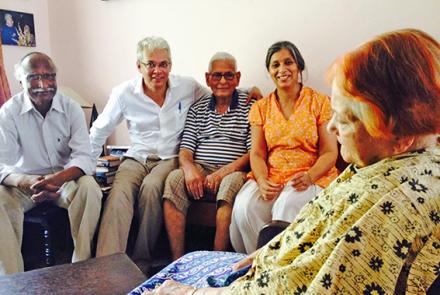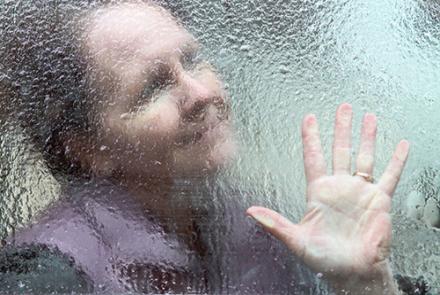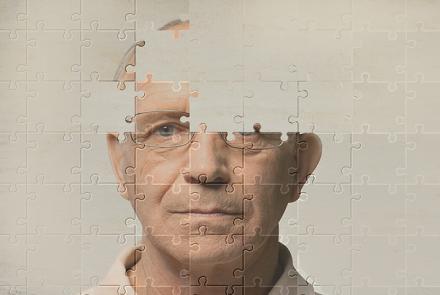
Ekta Hattangady became her mother’s primary caregiver when she was 13. Her mother had Early Onset Alzheimer’s at age 43.
Hindsight is always 20-20. I was an Alzheimer’s caregiver between 18-15 years ago. The world was a different place then. The internet was not as big as it is today and nor was Alzheimer’s a household name. Not in India, anyway. As time has passed, my work with families and people with dementia has increased and my level of knowledge about the disease has grown exponentially. Here is a quick list of things I wish I had known when I was caring for my mom.
Some of these tips may be more relevant in the middle to later stages of dementia. Some will be relevant throughout the journey. The reason they are all in one place is that no one can really pinpoint when a person might move into the next stage and sometimes, there is no clear stage.
1. Smile. Body language plays a very important role while communicating with a person with dementia. Sometimes, they may have difficulty in understanding our words, but somehow, a smile never fails. I almost always get a smile from a person with dementia when I have smiled and shown genuine warmth! This will be especially handy when they can no longer understand our words. If we do not smile, or are grimacing, they may think it is about them!
2. Do not quiz. A lot of people think that they are being helpful when they ask questions to a person with dementia. Honestly, it can be upsetting. It may come across as (i) a lack of trust (ii) condescending. Reminiscing with a person through pictures and music is a great way to connect. Instead of asking, “Who is this artist,” or “Who is this in the picture,” we could tell them who it is and reminisce about a specific person/song/trip/memory.
3. Be in front of them while talking to them. This means, we do not call out to them from another room. People with dementia may have a hard time registering voices and words if they cannot make out where the sound is coming from. We must make sure we are at their eye level. It can be intimidating if we are towering over them. If they are sitting, we could sit down, smile and talk in a normal voice and tone. Talking slowly or too loudly, especially in the early stages, can come across as disrespectful.
4. Use their preferred name. As dementia progresses, sometimes people may forget that they were married, or have kids or grandchildren. Which means, they may be unable to respond to being addressed as Mrs. J or Mom or grandma. I remember we used to call my mom by her name, Zarana. My grandparents were appalled when the help used to address her with her name, but our angel nurse aide explained sweetly that she responds best to being addressed by her first name.
5. Don’t talk about them in front of them. Remember, they are still people and can feel. No one in this world can actually tell us whether or not a person with dementia can hear or understand what is being said, especially when we use their name and talk about them, but not to them. Ask yourself, how would I feel if someone was talking about me within earshot.
6. Address the feeling, not the words. We have all heard of the “behaviours” that people with dementia may have. These “behaviours” could be getting angry, wanting to go home, repeating, leaving the premises without telling one, being suspicious, etc. My biggest advice would be try and analyse what is causing them to have such a response. For e.g. Every evening around 4.30, my mom would want to leave the house. We realized that was the time she used to go to buy vegetables from the vegetable vendor who used to come to our colony. This was years ago, and no longer a reality, but in her reality that’s what she needed to do. Simply taking her for a walk around that time helped in reducing the risk of her leaving home without telling us. It may similar for people who want to go home or to the office. Asking them about their childhood home or what they used to do at work, may help in reducing this anxiety of needing to go home or to work.
7. Do not argue or try to rationalize. Often people want their family member or friend with dementia to be grounded in reality. This means they want to tell the person that their parents are long dead and gone and asking about them is not going to help. Or, trying to tell them that the doctor told them not to drive anymore and that they should stop asking about that. People think they are lying when they let a person go on talking about people who are dead and gone. I think of it as “creative redirection,” which is just helping a person be happy in their reality. The biggest one is trying to get a person with dementia to remember an appointment by telling them, “Now dad, I told you 15 times that we have to go to the doctor on the 10th. Can you please stop asking?” Responding thus might actually upset them and make the situation worse. Simply repeating, “Oh don’t you worry, I will make sure to give you enough notice when you have to go!” The key is to be patient and have realistic expectations of their ability to remember or learn new information.
8. Manage your own stress. Caring for someone with dementia involves a lot of stress and sadness. It’s not just the physical stress of having to care for them, but the emotional stress too. If our sanity is hanging by a thin wire, it is going to come out in our communication. Take breaks – even 15 minutes of ME time daily can help in recharging our batteries. Music, meditation, exercise, praying, painting, etc. can all help in keeping our stress at bay.
9. Connect with your family member / friend with dementia at a deeper level. A lot of times, our relationship with the person with dementia becomes very functional. We become business-like or get stuck in a long to-do list. It’s all about groceries, or getting them ready or keeping doctor’s appointments. Listening to their favourite music, dancing, going for walks, colouring, reading their favourite book, joining a drumming circle, taking a swim, praying, etc. with the person with dementia helps us in still enjoying the relationship we used to have with them and in keeping them upbeat. It also helps in exploiting all their current capacities. Remember to modify, modify, modify as they progress in the later stages. At every stage, we can connect with them…we just need to believe that we can and TRY!
10. Reduce distractions or noise. If we are trying to get the attention of a person with dementia, and there’s too may people or loud music / TV playing the in the background, it may be hard for them to focus on us. We must ensure that we make appropriate eye contact (combined with welcoming body language and tone) before we speak.
And just one more bonus point!
11. Be patient. Allow time to respond. Repeat if necessary.
These tips are in no particular order. This list is by no means exhaustive. I didn’t do many of these, at least not all the time! The next post will be on self-care.
Post reproduced from https://fromoutsidethemall.wordpress.com/2015/08/29/10-communication-tips-dementia-caregiver/
















